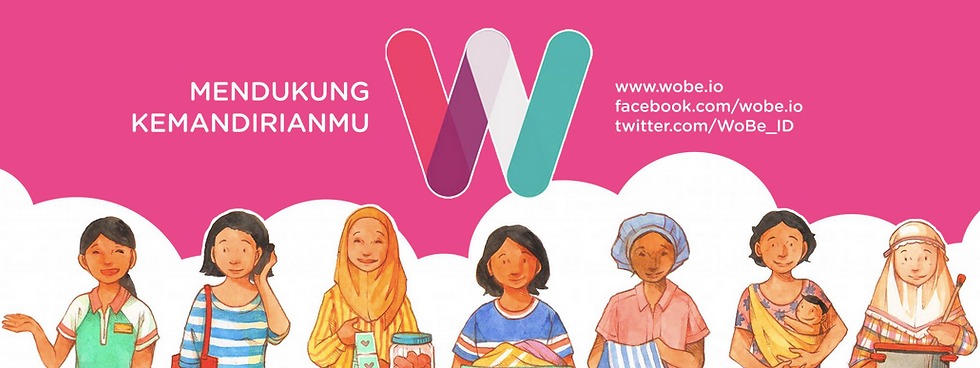Indonesian startup turns women into sales agents for prepaid phone credits
- TechinAsia.com
- Apr 27, 2015
- 3 min read
The business model that inspired Adrianna Tan is one most Indonesians are familiar with: buying and reselling prepaid credits for mobile phones, which in Indonesia are commonly known as “pulsa.” Her startup Wobe is trying to crack the inefficiencies of this system by making it easy for agents to access pulsa directly from the source at a good price, and by making the entire transaction transparent and trackable through an app. The company is a recent graduate of Jakarta’s Ideabox accelerator.

It’s always been simple to become an agent to resell pulsa. According to Tan, anyone who wants to can do so because it is a prepaid model. Aspiring sales agents have to put in the money upfront, and then charge a margin upon reselling. How profitable this is depends on the size of the margin a seller dares to charge, and “how high up in the supply chain” the initial purchase takes place, as Tan puts it. In the traditional model, pulsa are often sold and resold from one hand to the next, increasing the costs with each step.
Wobe cuts out these middlemen to make sure resellers get the best possible price, offers pulsa from all three major Indonesian carriers, and has a low entry barrier by requiring a minimum investment of only US$5.
Beyond mobile top-ups
Wobe is not limiting itself to pulsa. With the same concept, it plans to tackle prepaid electricity and water vouchers, as well as things like electronic train tickets. Through the Wobe app, anyone with a smartphone and internet can turn themselves into a diverse business for all kinds of digital transactions.
Tan specifically targets women because she says she sees a high and often untapped potential in this demographic, but the app is not exclusive to women.
“Wobe solves the problem of low income groups, that, especially in Asia, they don’t have access to capital to establish small businesses,” explains Tan.
Mobile phone penetration in Indonesia is estimated to hit 130 percent this year, with smartphone penetration considerably lower, but rising. This development inspired Tan to zero in on smartphones as a simple tool to turn anyone into an entrepreneur.
Beyond reaping profits from selling the digital goods mentioned above, Wobe users can also get additional perks by filling in surveys from corporations that partner with Wobe. Through the app, they also have access to educational content created by Wobe, like digital courses on entrepreneurship.

No better place to do business in ASEAN
Tan, born in Singapore, has worked in several tech startups, including Uber. She has also spent time volunteering and doing work at non-governmental organizations (NGOs) in Myanmar and India.
“When I was working in Myanmar, just before SIM cards and internet connectivity took off there, I saw first hand how mobile internet connectivity could change women’s lives for the better,” says Tan. This prompted her to come to Indonesia to start Wobe under the wings of the Ideasource accelerator. “I moved to Indonesia because I truly believe there is no better place to do ASEAN business,” she says.
During Wobe’s participation in the accelerator program, Wobe activated 500 test users for the app. Tan hopes to get 20,000 users connected by the end of August after their official launch in the Google Play store by June 1. “We are targeting 30,000 transactions daily on phone credits alone, which will give us a gross profit of US$60,000 a month,” says Tan.
Seeing beyond a Western-centric tech perspective
Some challenges remain with the model, and Tan says the Wobe team is working to find solutions. Currently, users will have to pay for the amount of digital goods they think they can sell in advance, which means that they carry the risk at times when there are little sales. Ideally, agents should be able to get their deposit back at any time if it is unused. “We are working on ways for agents to cash out the money,” says Tan.
Another challenge is getting the women on board to test the app. “It’s very hard to reach lower and middle class Internet users, ” says Tan. “They are online, but the tools we use just don’t reach them in the way we understand if you come from a Western-centric tech perspective. We’ve had to do a lot of ground outreach.”
For now, Wobe focuses on Indonesia but has plans to expand its business to other Southeast Asian countries. In Indonesia, Wobe’s main competitor is Ruma, a startup with a similar concept that has been around since 2009 and is backed by notable investors like the Grameen Foundation, Kiva, Golden Gate Venture, and the Omidyar Network.

















Comments